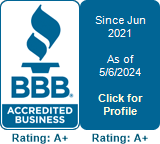Does the struggle with addiction feel like a cycle that never ends? Follow these steps to start breaking free from its hold on your or your loved one’s life.
Learn how substance abuse can alter lab results, what those results may reveal, and why these health markers matter for sustainable recovery.
Discover how success impacts mental health, identity, and addiction risks for high achievers and successful professionals across the globe.
Uncover why high achievers face unique addiction risks, the mental health toll of success, and sustainable strategies for recovery.
Discover what dual diagnosis means, why it matters, and how to support someone dealing with both addiction and mental health challenges.
Discover how addiction rewires the brain, affects dopamine, and creates a cycle of dependency. Breaking free often requires more than willpower alone.
Discover how emotional triggers fuel addiction, the link between trauma and substance abuse, and the importance of trauma-informed addiction treatment.
Discover the signs of a high-functioning addict, the challenges they face, and how to help.
As an emerging public health crisis, it’s critical to know the fentanyl symptoms to watch for if you suspect someone you care about might be using.
If you’re ready to start taking steps to live a sober life, we put together this guide to help you get started on the path to sustainable sobriety.
If there’s a teenager in your life who could be struggling with drug or alcohol addiction, here’s what you can do to support them.
When someone is struggling with addiction, making human connections during recovery can make a vital difference for long-term success.
If you’ve heard about the dangers of alcohol and substance abuse withdrawal, it’s important to know what to watch for and when to seek help.
Do you need to understand how to help an addict who doesn’t want help? It’s a common situation—here’s what you can do.
If someone you know is struggling with addiction, you may have encountered a few of these common misconceptions. Some you may even assume to be true.
When someone you care about is at risk of opioid or heroin relapse, knowing the warning signs can potentially save their life.
While completing rehab is a vital step to recovery, you must remember that life after rehab presents its own challenges that you need to be prepared for.
It’s common to enable the addiction of someone you care about in an attempt to help. Here’s what to watch out for.
With several types of addiction treatment therapies available, finding the most effective solution can be a challenge. Learn how to approach your options.
The patterns of a high-functioning alcoholic can be difficult to spot, so it’s critical to understand the warning signs and the problems they can cause.
When recovering from addiction, individuals often substitute one addiction for another in a behavior commonly referred to as addiction swapping.
Social stigmas surrounding addiction and mental illness are one of the most common barriers preventing people from getting the help they need. Learn more.
Addiction case management describes the coordinated continuum of care given when treating someone struggling with alcohol or substance addiction.
Knowing when to reach out for help when you or someone you care about is struggling with addiction isn’t easy. Jason Wahler explains how a quiz can help.
April is Alcohol Awareness Month, and ALYST Health provides at-home recovery resources for individuals and families struggling with alcohol addiction.
The relationship between pets and recovering addicts can play a surprisingly vital role on the road to recovery. Learn more about the connection.
When someone is struggling with drug or alcohol addiction, codependency is often an overlapping issue. Learn more about what it is and how to overcome it.
Figuring out the best way to help someone recovering from addiction is an ongoing process with no easy answers, but here is how to get started.
Are you trying to figure out what to do after a relapse? Relapses are often part of the recovery journey, so what matters most is what you do next.
When recovering from addiction, many situations can increase the risk of drinking or using. Learning how to navigate them is critical to long-term sobriety.
As you’re supporting someone struggling with drug or alcohol abuse, it’s worth understanding drug addiction psychology and the role of the mind.
Stereotypes make it seem like it should be easy to spot someone struggling with addiction, but anyone can have that struggle, no matter who they are.


